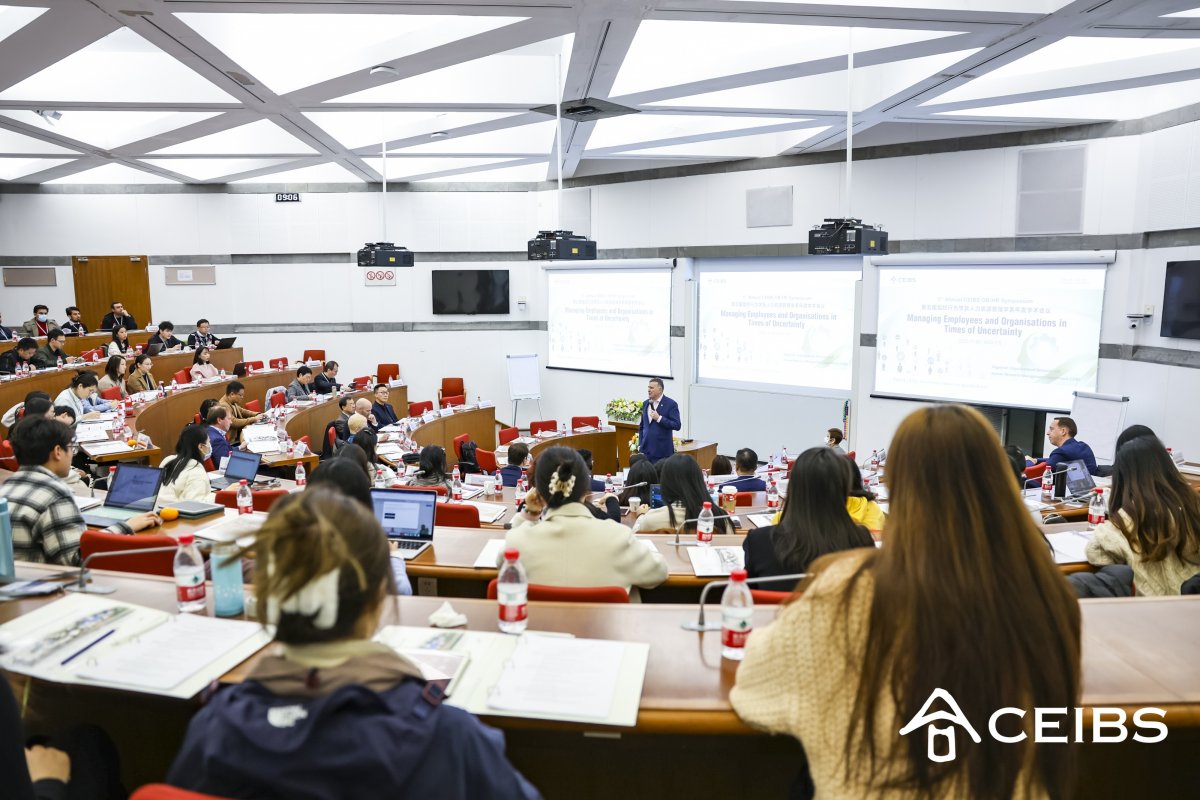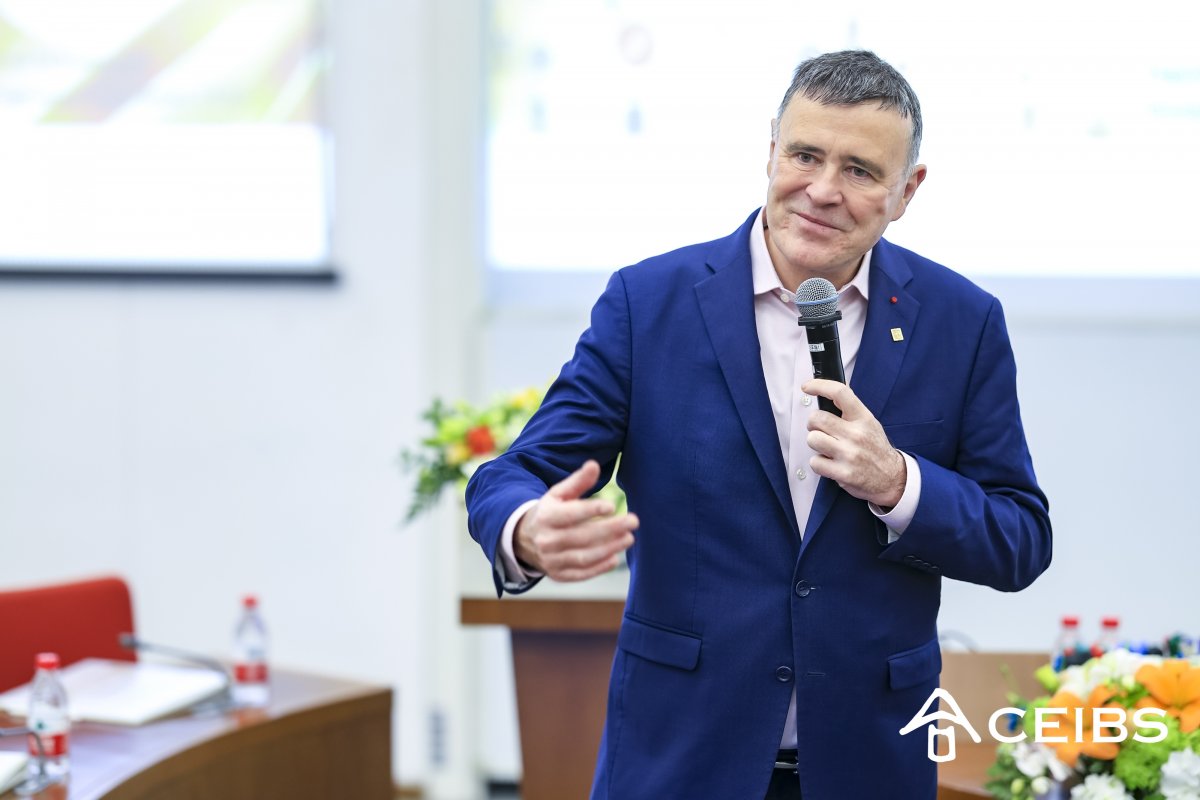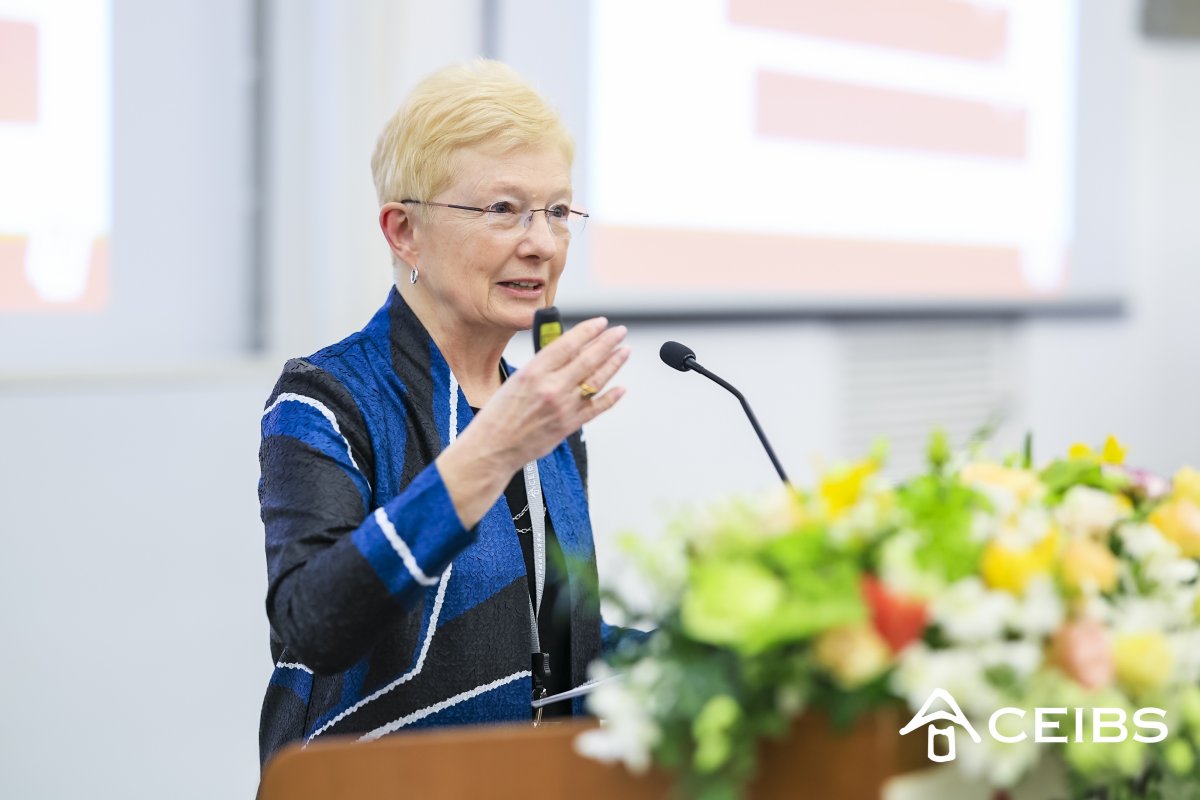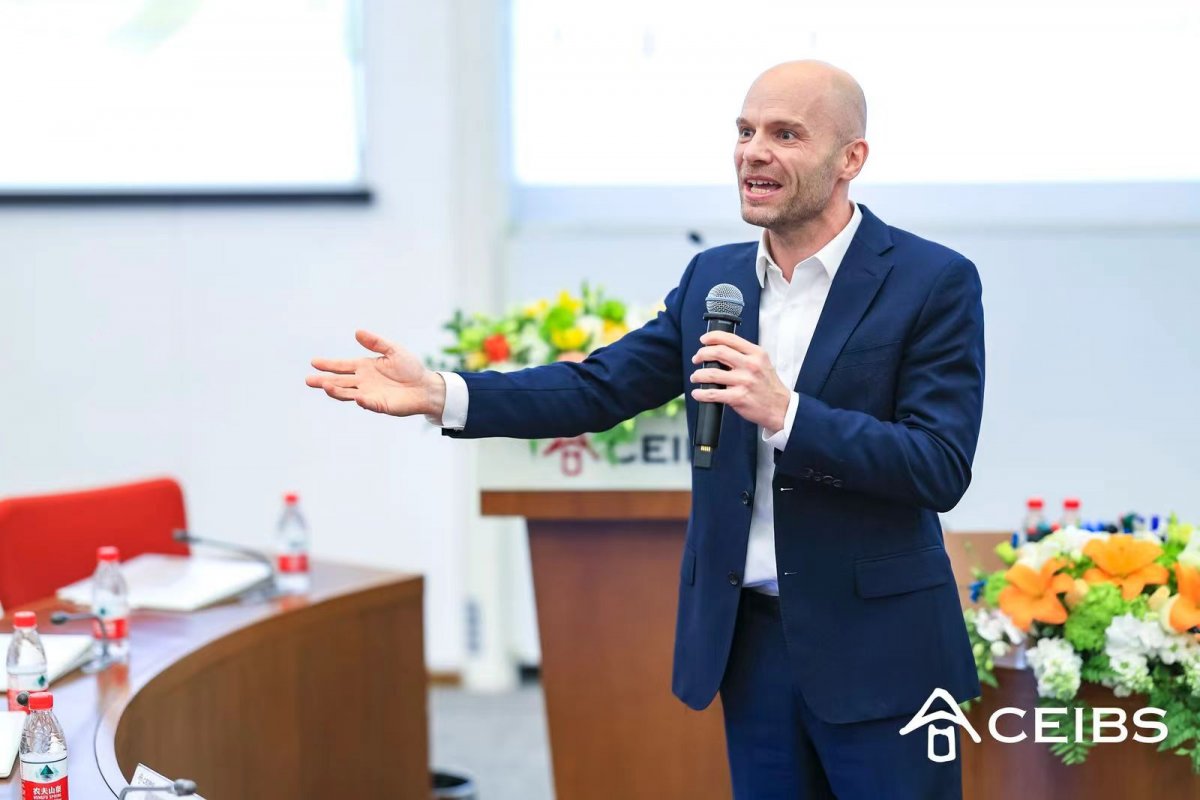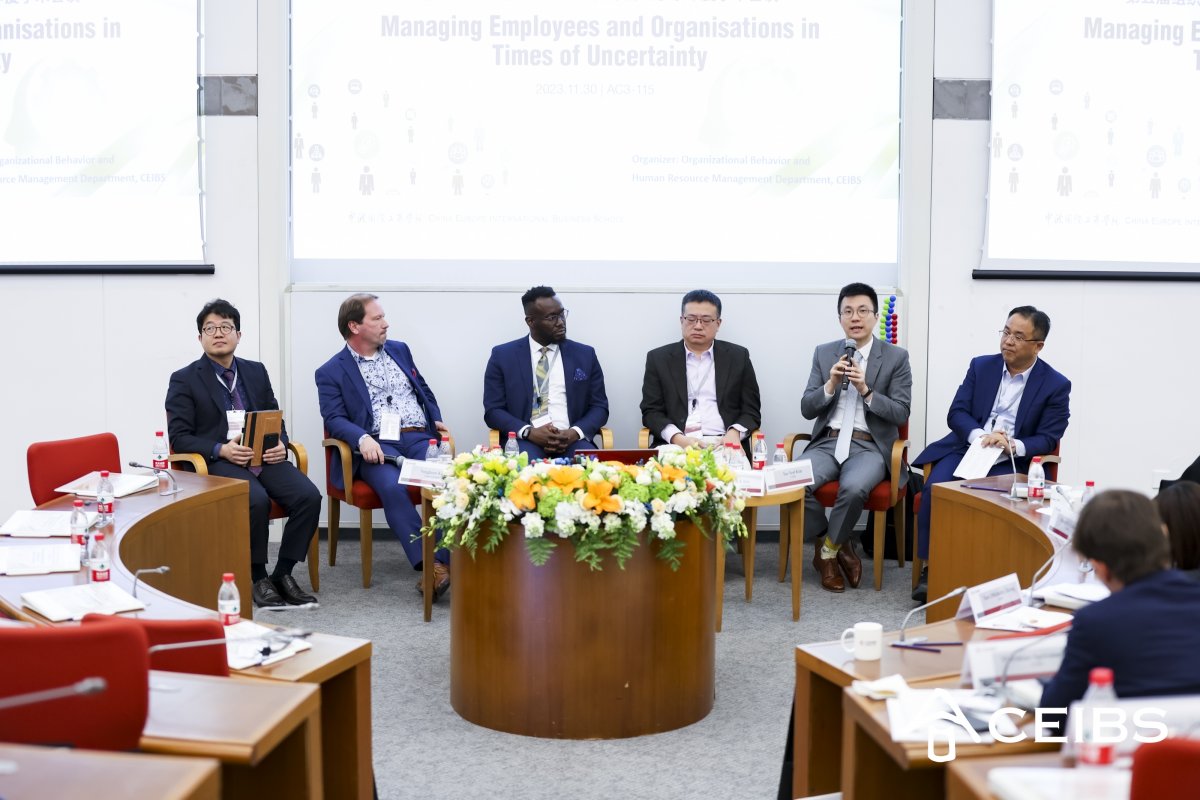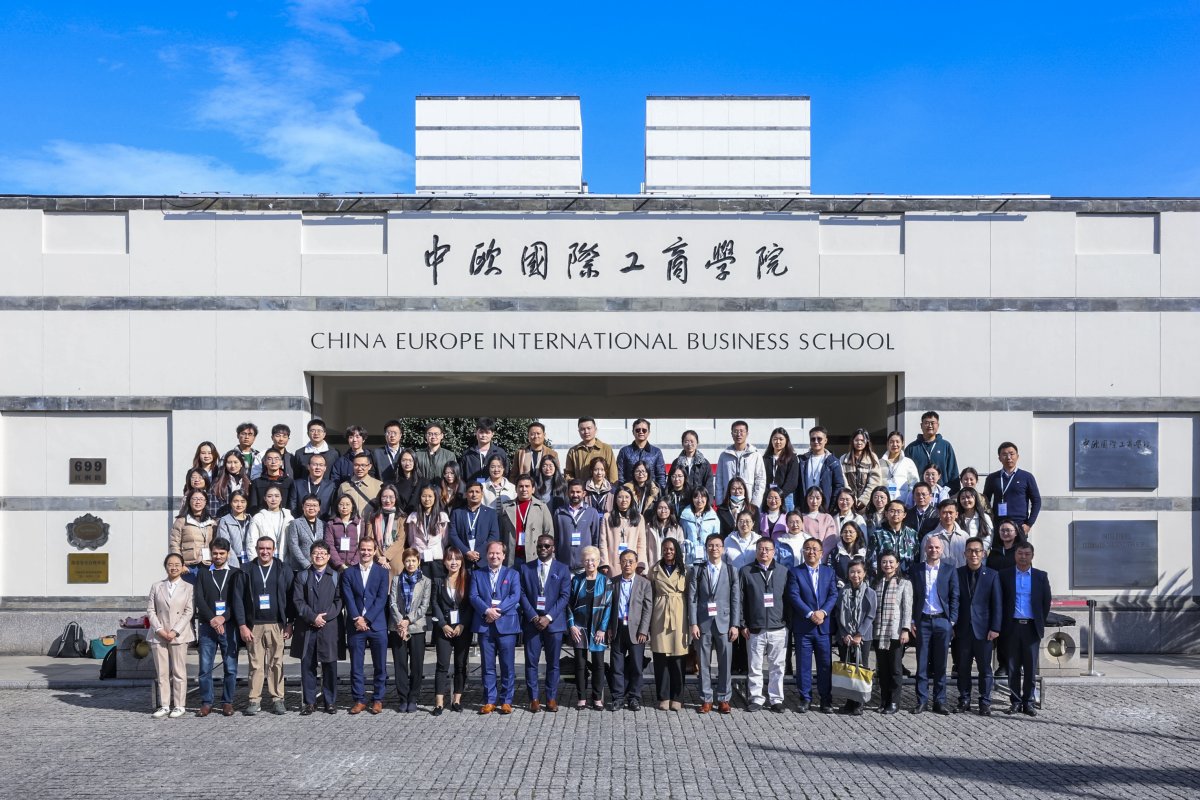5th Annual CEIBS OBHR Symposium
November 30, 2023. Shanghai – The CEIBS Organisational Behaviour & Human Resource Management Symposium is a forum for academics to discuss their latest research in organisational behaviour and human resource management. The theme of this year’s symposium was Managing Employees and Organisations in Times of Uncertainty, which examined how employees and organisations both respond to and manage uncertainty. More than 120 professors, doctoral students, and business practitioners from around the world gathered on the CEIBS Shanghai campus for the event.
This year’s symposium featured one keynote speaker and two expert panels, with one panel focusing on individual-level topics and the other on organisation-level issues. Professor Flora Chiang and Professor Jian Han of CEIBS hosted the symposium. CEIBS Vice President and Dean Professor Frank Bournois, Chair of CEIBS OBHRM Department Professor Sebastian Schuh, and symposium co-organiser Professor Flora Chiang gave welcome addresses. CEIBS Professor Matthias Spitzmuller introduced Professor Margaret Shaffer, Michael F. Price Chair and Professor of International Business at the Price College of Business, University of Oklahoma, and 2023 Keynote Speaker and Visiting Thought Leader of the OBHRM Department.
Professor Shaffer gave a keynote speech entitled A Tale of Two Perspectives on Culture Shock – Insights and Inspirations. In her speech, she observed that culture shock is ubiquitous and not limited to those who make the transition to another culture to work and live. She integrated two perspectives to one, argue for a continued but reimagined approach to expatriate adjustment research by drawing on findings from the newcomer adjustment domain, and two, laying the groundwork for future research on domestic employees by taking a theoretical lens from one focal group of people in one context (i.e., global employees in an alien culture abroad) into another (i.e., local employees in an alien culture at home).
Managing Employees in Times of Uncertainty was the focus of the first panel, chaired by Professor Spitzmuller. The panel featured three speakers; Professor Hui Wang of Peking University gave a presentation on Dialectical Leadership Behaviour and its Antecedents and Consequences: An Indigenous Research Approach. He and his coauthors developed a new leadership construct, namely dialectical leadership behaviour, and tested its antecedents and consequences. They found that dialectical leadership behaviour was composed of six dimensions: timely adjusting, individualised mentoring, weighing contradictions, balancing kindness and strictness, promoting coordination, and holistic management. Professor Markus Pudelko of the University of Tübingen discussed how multicultural and multilingual employees develop and enact their particular capabilities to bridge cultural and language barriers in international work contexts. They developed a theoretical model of bridging activities that carefully distinguishes between the related, but still distinct, concepts of culture- and language-related bridging. The third speech was given by CEIBS Professor Nana Yaa A. Gyamfi, entitled Fit Among Emerging Country Returnees & The Role of Identity Workspaces. She discussed how emerging country professionals navigate fitting within their home country contexts after immersion in other advanced countries.
In the afternoon, CEIBS Professor Michelle Zheng chaired the second panel: Managing Organisations in Times of Uncertainty, featuring two speakers. Professor Mayowa Babalola of RMIT University shared his research project How Do Managers Lead in Times of Uncertainty? Understanding the Implications of Uncertainty for Managers in Organisations. He presented two theoretical models elucidating the emotional, cognitive, and behavioural consequences of two types of uncertainty - financial and job insecurity - on leaders, drawing from Uncertainty Management Theory (UMT). Next, Professor Sunghoon Kim from Sydney University gave a presentation on Strategic HRM and Environmental Disruptions. In the presentation, he examined the role of strategic HRM in the face of environmental disruptions and also discussed how China-based research can further advance our knowledge on this subject.
During the final section of the symposium, Meet the Editor was a round-table discussion featuring six editors and of top-tier journals sharing their views on how to publish and how to respond to R&Rs, moderated by Professor Zheng. Drawing from their experiences in academic publishing, they shared insights that proved greatly beneficial to all attendees. They also called for more Chinese scholars to participate in manuscript reviewing.







